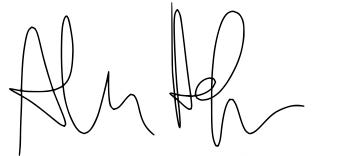Yesterday, after a conversation with
about how to choose what tasks are most important to work on when running a business, he suggested I pick up David Allen’s Getting Things Done.Today, I find
’s “I Can't Stand Books That Tell You How to Live” in my inbox. Reych explained that reading self-help books is like “trudging through chapter after chapter of the same basic advice was more than they could bear.”The timeliness of these events fueled the fire to jump into this argument, as longtime friends Zofia Reych and I can never agree on this.
I’m a big reader of self-help. I do, however, fall victim to the vapid nature of self-growth tropes, authors’ nauseating aggrandization, and lofty promises that fall short as you flip the last page. I often spend seven hours devouring a book hoping for the promise to be delivered only to realize by the end that this person’s advice is too thin to be applied.
Yet, I keep reading. Here’s why.
We mentally categorize “Self-help" like “mental health.” They often get framed as needed by a person with flaws or one who carries unhealed wounds. It implies a message, a connotation: reader, you’re broken, you’re weak.
The catch of most self-help books snags us, as most of what must be applied takes years of practice, not hours of reading in a chair. Therefore, we are left wanting.
The difference between reading traditional nonfiction is the way the material is presented. Writers of self-help have a tendency to be bossy and helpful (hence the name), like you’re listening to advice from a friend. Traditional nonfiction reads academic, citing sources and letting the research speak for them. Self-help authors have the balls to speak for themselves.
The wisdom I have gleaned from many self-help books is not equal, but we should not judge a book by its category. By measure, there will always be bad books and good books, wise authors and charlatans. If we put away another self-help book and remain unchanged, I choose, as a writer, to remember that the author, although willing to share their wisdom, may not be a great teacher.
In a culture that traditionally elevates masculinity, strength is often equated with logic, control, and emotional distance, styles found in traditional nonfiction. Anything rooted in introspection, emotion, or learned experience, like self-help, is dismissed as weak or unscientific. Self-help often values lived experience over external validation from gatekeeping authorities. We’ve been conditioned to trust data over depth of experience, the lab coat over the lived life.
The title self-help is the problem. The term “self” coupled with “help” reflects someone looking for help. The idea that asking for help is weak, and by extension, feminine, has deep roots in patriarchal history. For centuries, strength was defined by masculine qualities of dominance and emotional restraint. Self-help centers personal experience, growth, and emotional intelligence—things historically devalued because they aren’t easily measured or male-dominated.
Many cultures have historically shared knowledge through teaching and storytelling. Indigenous communities passed wisdom through elders and rituals, blending practical and spiritual knowledge. In Ancient Greece, learning often happened through dialogue and mentorship, while in some African and Asian traditions, knowledge was shared through oral stories and apprenticeships. Is it now unreasonable to suggest that there are insights that science alone may overlook?
Even when I reach for a book on the Self-Help shelf, I feel a twinge of lacking. Am I an imperfect human that should be perfected? The answer is “no.” But as Carl Jung said, “Who looks outside, dreams; who looks inside, awakes.”
Instead of throwing out the quest for personal knowledge altogether, we should recategorize and distance these texts from Western individualistic messaging.
How would you feel if the text you bought was labeled as:
Collective Wisdom
Personal Mastery
Conscious Learning
Wisdom in Practice
People interpret these books as solipsistic or desperate, but the desire to focus in on a certain skill you wish to improve is a quality based on self-reliance, personal agency, and an unquenchable quest for knowledge.
“To know thyself is the beginning of wisdom.”
Socrates
Applied learning, especially about ourselves, shouldn’t feel shameful.
Perhaps what
Thanks for reading!
What’s coming up in my space:
Becoming Conscious with Money: For years, friends have asked how I kept growing my net worth, even when I was living paycheck to paycheck. Then, after I shifted my mindset and used specific strategies, I more than doubled my income in less than a year. I’ll teach you my strategy to become conscious with money.
Re-introducing My Newsletter: Wait? Isn’t this a newsletter. Yes,and no. For me, this has become a sacred space for my ideas. My newsletter is where I share my programs, masterclasses, events, and coaching. Sign up here: subscribepage.io/alicehafer


